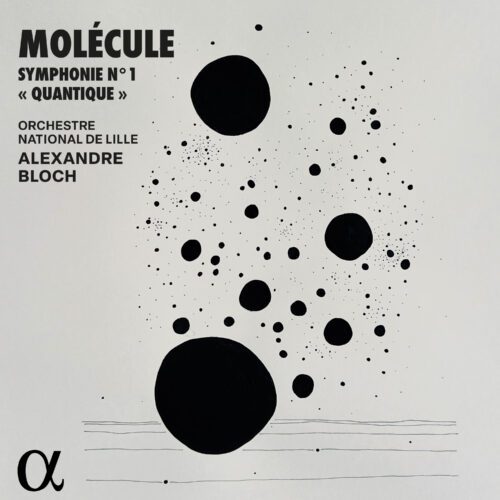The crossover between DJing and symphonic music is not always a happy one, far from it. All too often, it ends up with an orchestral framework supported by beats and vaguely impressionistic colourings. I’m not saying it’s unpleasant or even bad, but you don’t often get the impression of going very deep into the exchange.
This Symphonie no 1 ‘’quantique‘’ by French electro artist, producer and DJ Romain De La Haye-Serafini, aka Molécule, dares to dig deeper. Here, electro is not used to provide a techno-pop pulse but to serve as a palette of colours and textures that evolve throughout the work, moulding themselves to the orchestral plasticity like a new instrument.
A true post-modern expression, this ‘molecular’ symphony constructs an abstract narrative that is intuitively coherent in its unfolding through a vast array of modern and contemporary stylistic tools. We hear spectralism, impressionism, cinematic romanticism, experimental asperities, etc.
The ‘artificial’ sounds are in fact very natural, having been captured in situ (on the Atlantic Ocean and in Greenland, among other places) by the composer. He then reworks them entirely in the studio, manipulating them, changing their register and texture, and so on. They become simple echoes, evanescent spectres of their initial nature, and brand-new tools that allow him to colour his score unexpectedly.
The result is carefully constructed, with an exciting attention to narrative quality. A whole spectrum of images unfolds before us, or at least in our receptive minds. Some are colourful abstractions, like a field of shimmering particles, others evoke space travel and still others a vaguely undulating terrestrial nature.
A few explicit quotations from Jupiter in Gustav Holst’s The Planets imperiously bring the listener back to the composer’s musical language’s ‘cosmic’ and cinematic nature.
Even if it is sometimes difficult to differentiate between what is electronic and what is acoustic, it is nevertheless easy to deduce the high instrumental and timbral quality of the Orchestre de Lille, under the meticulous direction of Alexandre Bloch.
A true symphony for the 21st century, both sophisticated and accessible, and above all an immense pleasure to listen to.
























